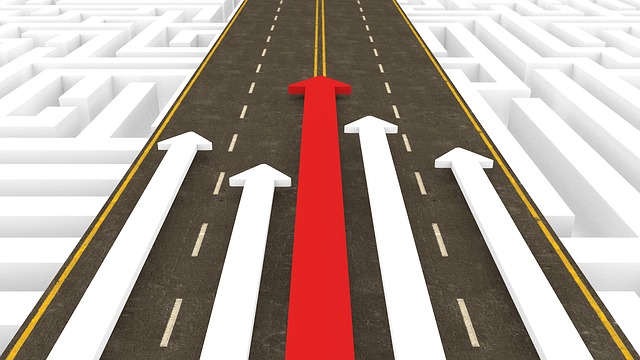clear

source:
art130405/pixabay
It depends on the culture of the organization. When you’re just starting and you’re the only one who truly knows what you’re doing and where you’re going, you need to be directive to the other members. Telling them what to do by showing them, and asking superior result. It’s useless to be democratic with members who are not on board with your goals yet.
In time, when “me” and “you” become “we”, and all members of the organization doesn’t need to be told what to do, a leader can switch slowly to democratic leadership. Considering now they are more experienced and ready, a leader can start delegating chores and responsibilities, and asking for suggestions to make the organization better and more efficient. Becoming a directive leader is much more tiresome than democratic, because all problems need your answers, which will not be good for a long time. When you practice directive leadership, it could lead to dictatorship, which is not good culture for an organization. Therefore, a leader should plan a way to make the organization toward democratic ambiance.
clear
I will always say democratic, but we should keep in mind that it depends on who is part of that democratic process. If the leader is competent, knows right moves and works for public interest, there should be no problem with directive leadership. Democratic leadership doesn't have to be always constructive due to many people has different goals and intentions regarding what should society look like. They can be more self-servant caring only about themselves and not be into public interest that much.
So, I would say that democratic leadership is more effective because of communication that always enhances chances to do things better way, but not always. Sometimes it can be other way around.
 1
1
clear
 Marja Radić
6 years, 10 months ago
Marja Radić
6 years, 10 months ago
Moderator's comment:
Well explained when directive leadership is more effective!
Democratic leadership is more effective than directive simply because it targets different aspects of human interactions besides giving and following orders. In democratic leadership, follower/employee feels cofindent enough to give some suggestion or opinion, that suggestion might be a very good one and eventually cause a prosperity of the whole organization. One mind cannot outsmart the many because nobody thinks identically. Ideas and constructive arguments are the best way to come up with a plan that will be the most efficient one. That is what directive leadership lacks.
 1
1
clear
 Josip Sovar
6 years, 10 months ago
Josip Sovar
6 years, 10 months ago
Directive leadership is simply a leadership where a leader gives direct orders to their followers without having a two way relationship and communication, in most cases. These type of leaders do not inspire people and simply act as dictators.
I believe this type of leadership is less effective than democratic leadership, because democratic leadership promotes the skills and abilities of a true leader, one that inspires, communicates with their followers and acts both as a "boss", a leader and a friend, at certain angles.
 0
0
clear
 Ignas Mikalauskas
6 years, 11 months ago
Ignas Mikalauskas
6 years, 11 months ago
Personally, I am more productive when working with democratic type of leaders. It is so because I feel that I am trusted enough to do my job without being permanently observed. Also, I admire leaders who respect and have personal attitude towards their team members but I am aware of the fact that such method of cooperation is possible when the group is reliable and self-conscious.
 0
0
clear
I think democratic leadership is better for both leaders and followers. Directive leadership leaves no room for workers to express their views. The boss directs his judgment and leaves no room for discussion. He does not ask for the opinions of others and always decides by himself. Directional guidance can only be useful in a few cases, such as when we need the full attention of others, and any one of the workers cancels it.
Otherwise, the democratic approach is much better. Leader has responsibility not only on his own and can pass much responsibility to others. He allows discussion, takes into account the suggestions and opinions of others. Ultimate decision is made by leader, but he takes into account the opinions of his colleagues. They have room for their own realization and are much more loyal, because they share the result themselves.
 0
0
clear
Moderator's comment:
A great point about directive leadership being better in some cases even if a group is mature for democracy.

Sign up to post or vote on answers.
Improveo will help systemize your knowledge.

Moderator's comment:
It seems all debaters agree that democratic leadership is generally better than directive, just groups and their members need to grow to afford democratic leadership. Astrid summarized it very nicely. Would you agree?